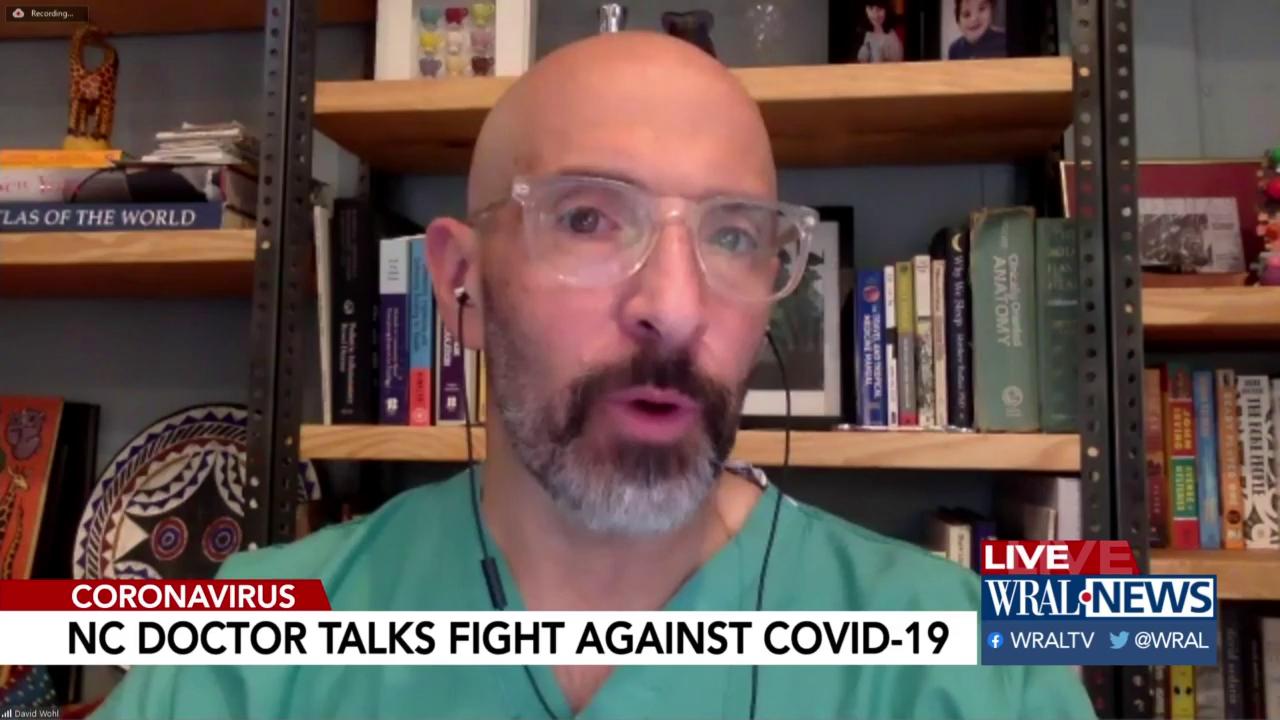
Last week’s authorization by the U.S. Food and Drug Administration for emergency use of bamlanivimab feels like a shot in the arm, so to speak, for David Wohl, MD, a UNC infectious diseases physician and researcher. A monoclonal antibody developed by Eli Lilly to treat mild to moderate COVID-19, bamlanivimab is one of the drugs that Wohl and a team of researchers are studying through the ACTIV-2 clinical trial.
“It means we’re on the right track,” Wohl says of the FDA’s November 9 emergency use authorization of the drug, the first to be issued for a COVID-19 outpatient treatment. An emergency use authorization is not an FDA approval, but it allows for the drug to be given to patients at high risk of severe COVID-19 as the potential benefits outweigh the known risk. A clinical trial conducted by the company that makes the medication found that bamlanivimab modestly reduced the level of the virus in the nose as well as hospitalizations and emergency room visits – although these were rare in the study. Last month, a study of bamlanivimab in hospitalized patients stopped enrolling new patients after a review found a low likelihood of the drug adding any clinical benefit.
“It’s a promising drug, but it’s not a slam dunk yet,” says Wohl, who stresses the need for continuing research. He is vice-chair of ACTIV-2, which is sponsored by the NIH with UNC physician researchers Joseph Eron, MD, and William Fischer, MD, as co-investigators. The trial is enrolling at over 60 U.S. sites and will soon expand globally, including Brazil, Peru, and South Africa. Begun in September, ACTIV-2 is now studying 300 participants, including 30 at UNC. Throughout the long-running study, investigators will add and remove promising treatments as they become available. The goal is to develop a treatment that prevents the virus from developing into a severe illness requiring hospitalization.
UNC Health’s testing site in Chapel Hill alone is identifying about 20 positive COVID-19 tests a day, or about 100 a week, Wohl says. Recently, the number of people coming in for testing due to COVID-19-like symptoms has trended up. Wohl says the increase in cases is very troubling and increases the already urgent need to find safe, effective therapies for COVID-19. “People should know that the authorization for bamlanivimab means it might be effective but we won’t know for sure until we finish studying this drug,” Wohl says. “We still need people to participate in the research so we can find out what really works.”
